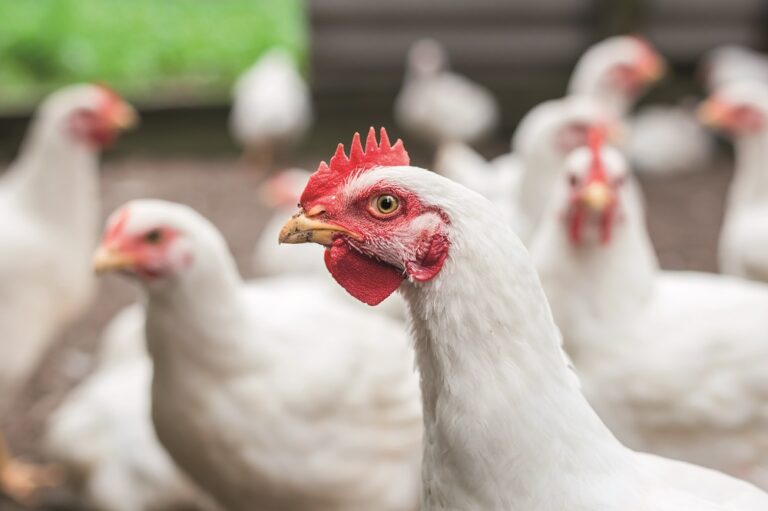Queen’s University Belfast and Devenish have published a study to prove the negative effect of low levels of mycotoxins on broiler chicken health and performance
The three-year study, a first of its kind in this field, was conducted by Oluwatobi Kolawole at the Institute for Global Food Security (IGFS) at Queen’s University Belfast, in partnership with agri technology company Devenish. Its findings demonstrate that even low levels of mycotoxins, below EU regulatory levels, have a direct negative impact on birds’ performance.
“Mycotoxins are chemicals produced by fungi that can have serious effects on health, performance and the immune system of animals and humans if they get into feed or food,” said lead researcher Oluwatobi Kolawole.
“Whilst it is well known that mycotoxins at high levels negatively impact animal health, to date it has been difficult to accurately examine the impact of these at low levels. This was, therefore, a long-term feeding trial to evaluate the effect of low doses of mycotoxin mixtures on the performance of broiler chickens being fed a naturally-contaminated diet.
“We monitored birds over 18 crops and continually examined the level of mycotoxins against the performance of the birds.
“Whilst the levels of mycotoxins were low, the mixture of those present throughout the study had a profound negative impact on bird health and performance. The study showed that an increase in mycotoxins led to an increase in Feed Conversion Ratio (FCR). Increased levels of mycotoxins also led to a decrease in feed intake by the birds and a decrease in body weight,” said Oluwatobi Kolawaole.
Professor Chris Elliott, Institute for Global Food Security (IGFS) at Queen’s University Belfast, continues: “This piece of research, in partnership with Devenish, revealed fascinating results that are of crucial significance to poultry producers and will undoubtedly lead to future collaboration to further extend our knowledge in this field.
“Whilst regulatory levels of mycotoxins set by the EU are centred around safety, this study was centred around performance. The negative impact that mycotoxins had on bird performance highlights the importance of poultry producers being aware of even low levels of these toxins. “Therefore, they must consider how they are going to mitigate the impact of even low levels of mycotoxins in their animals’ diet.
“Importantly, the study identified a specific mix of mycotoxins (DON, FBs, ZEN and DAS) that are relevant to poultry. For that reason, we can conclude that best combatting the issue can be achieved through an additive specifically designed to target poultry specific mycotoxins,” Professor Chris Elliott said.
Devenish and Queen’s University Belfast have a long-standing partnership built around pioneering nutritional and technical research.
“Devenish is proud to have once again collaborated with our partners at the IGFS, Queen’s University Belfast, to undertake this significant piece of research,” added Jonny Lester, Poultry Technical Manager, Devenish.
“We have calculated the impact of these mycotoxins on profitability. With FCR across crops differing by up to 14 points and each point of FCR resulting in additional feed costs, feeding a species-specific mycotoxin binder, such as SmartShieldAV, at low levels all year and increasing it as required, is likely to have significant financial benefits.
“As well as performance and profitability, there are also sustainability benefits in reducing mycotoxin presence in a poultry flock. Improvement in this area would reduce raw material input such as soya and the land use change associated with its use. Reduction in FCR would also have the potential to reduce nutrient excretion and its impact on the environment.
“This type of ‘precision nutrition’ research, when applied commercially, allows our customers to get closer to the genetic potential of their stock and ultimately brings producers benefits across performance, profitability and sustainability,” Lester said.


